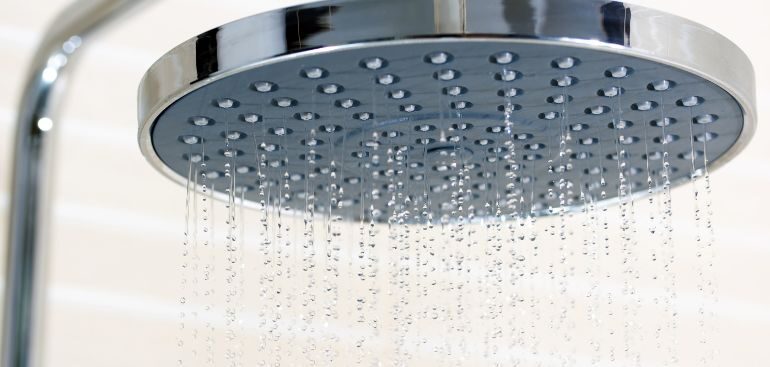Hard water contains a high amount of dissolved calcium and magnesium. It picks up excess minerals as it flows over or through limestone, chalk, or gypsum deposits. Read to discover the top reasons why you shouldn’t shower with hard water.
Hard Water Creates Soap Scum
Hard water interferes with soap and shampoo, making it impossible for you to get a true clean. When hard water touches your soap and shampoo, a chemical reaction occurs. The calcium and magnesium ions react with the fatty acids in your bath product to form insoluble lime soap, also known as soap scum.
Ever noticed a white or gray chalky residue on your showers, bathtub, or sink? That is soap scum formed from the reaction between your hard water and cleaning products. Softening your hard water will eliminate this problem in the future.
Hard Water Creates Brittle, Dull Hair
Soap scum doesn’t just form on surfaces in your bathroom. It also coats your hair and skin when you shower or bathe with hard water. And since the layer is the result of your cleaning products interacting with the water, simply adding more water, more shampoo, or more soap does not fix the problem.
If you wash your hair in hard water, it can look frizzy and become dry and brittle. Color-treated hair might fade faster with hard water washes. The soap scum film covering your hair makes it difficult for moisture to penetrate to the hair shaft.
Without adequate moisture, you might experience more serious hair-related problems. It can also make your hair so weak that it breaks, causing split ends and hair thinning. Installing a water softening system will stop the process of soap scum formation, improving your hair’s health.
Hard Water Dries Skin
The final reason you shouldn’t shower with hard water is that it dries your skin. Just as the layer of soap scum prohibits moisture from reaching your hair, the buildup contributes to dry skin.
Hard water can dry out your scalp and cause flaking. Hard water can also make your skin more prone to dryness and itching. If you have a skin condition such as psoriasis, hard water might worsen the symptoms.
If you have dry skin because of hard water, a water softening system is the best course of corrective action to take. Replacing hard water with soft water will allow the surfactants in your shampoos and soaps to lather better and clean more effectively to get rid of dirt, oil, and residue.
If you’re ready for a cleaner bathroom, softer hair, and better skin, use the water softening services of Good Water Company. We can assess your home’s water quality and install a customized treatment system. We will also perform inspections, assessments, and repairs on the equipment we install. Contact us today for excellent service!


1 Comment
You really make it seem so easy with your presentation but I find this matter to be actually something
which I think I would never understand. It seems too complicated and very broad for me.
I am looking forward for your next post, I’ll try to get the hang of it!
My webpage: freecredit